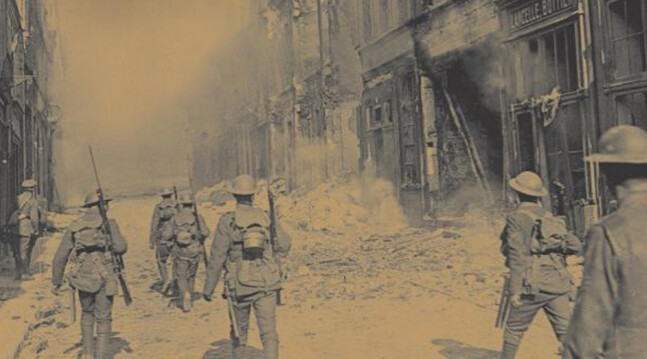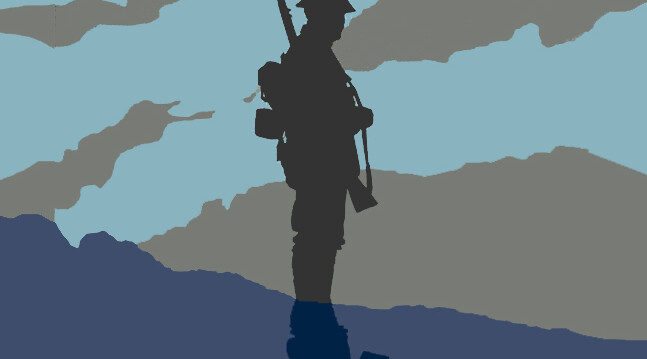Ethics Fellows for the Future are student mentees of Carnegie Council Global Ethics Fellows. The purpose of the program is to build the next generation of thinking on ethical issues in international affairs and to facilitate cooperation and dialogue between students from different regions of the world. Read their final projects in magazine form or download the PDF at the bottom of the page.
INTRODUCTION:
Inaugurating Student-Teacher Mentorships Around Global Ethics
Last year, Carnegie Council inaugurated its first class of Ethics Fellows for the Future (EFFs), students who are appointed and mentored by our current Global Ethics Fellows (GEFs) and are invited to attend our annual meeting and collaborate with their mentors and peers on joint projects.
Thanks in part to the generous support from the Henry Luce Foundation, more than a dozen EFFs—many from East Asian and American universities—were able to present their projects to their peers at our November 2013 annual meeting in New York City. During that meeting the EFFs also participated in discussions with GEFs on the topic of a "global ethic," attended a lecture by philosopher Kwame Antony Appiah, and visited cultural sights in New York City, including the Lower East Side Tenement Museum.
This booklet is a collection of the EFFs' essays and project outlines as well as the winning essay of Carnegie Council's 2014 Trans-Pacific Student Contest. The two winners of that contest are invited to participate in our 2014 annual meeting.
In the Trans-Pacific contest, students were asked this year to answer the following question: "What are shared or different values between you and your contest partner's home country?" The winning essay by Salina Lee (United States) and Nelson Chew (Singapore) is written as a lighthearted conversation between two good friends on a sightseeing trip in New York Harbor, yet looks at serious topics that concern both nations: civil liberties, education, and race.
In their research papers, Ethics Fellows for the Future addressed Carnegie Council's focus of ethics in international affairs from a number of different angles. Michael Angelo Liwanag, at International Christian University in Tokyo (ICU), proposed a new set of ethical guidelines for UNESCO in adding sites to its World Heritage List. He later developed this paper into his thesis project and is presenting his work at academic conferences and publishing the argument in journals.
Ethics Fellows for the Future also tackled some of Carnegie Council's Centennial themes. On "Citizenship and Difference," John Howard of Dartmouth College wrote a piece critical of U.S. commitment to international treaties through the lens of voting rights for Puerto Ricans. Joanna Maulbeck, at Rutgers University, focused on the theme of "Technology and Risk" in her piece, analyzing the positives and negatives of technology use for early child development.
Following the model of Carnegie Council's Global Ethical Dialogues, some students chose to hold their own focus groups investigating ethical question pertinent to their communities. Alison Walt held a focus group at the University of Oregon asking students their views on citizenship. Gabriel Lima de Almeida of Fluminense Federal University in Rio de Janeiro proposed a project that would include a focus group asking Brazilians about government corruption—the topic of Carnegie Council's site visit to Rio de Janeiro last year.
The fellowship program aims to cultivate the next generation of global leaders by introducing exceptional students to educational resources on ethics and international affairs and creating opportunities for them to meet one another in person to share experiences and ideas, and to build lasting relationships.
During the November 2013 conference, we had a chance to get some of the impressions the students had of the program. EFF Berenike Schott of Georgetown University said she joined the program as a way to better understand how academic research can be relevant for political practice. Similarly, EFF Zeyu Wang of Peking University said he attended the conference because he believes ethics is not limited to social science questions but goes beyond into areas of science and technology—areas of his research. EFF Gage Hansen of the University of Utah said that interactions that the program made possible between the mentors and students made his work more "fulfilling" and "effective." Speaking directly to the mission of the program, EFF Marisa Roy of the University of Southern California noted that the network and conference gave her a better appreciation of the "cultures and assumptions" of others as well as her own.
EFF Vivian Ng of Singapore Management University noted that the program gave her a new appreciation of cultural differences and nuances and reminded her that the answer to a question may not always be so self-evident. EFF Oumie Sissokho of National Chengchi University in Taiwan reflected on the experience, calling the program "awesome." She also noted that the examination of ethical matters is not a solo endeavor; rather it should be done as a community, and the consideration of these issues equips younger people to contribute to global security.
EFF Liwanag of ICU said that upon speaking with several fellows at the conference, he concluded that the program would be "instrumental" to their future careers after they return to their universities and communities.
Carnegie Council's 2014 Centennial theme for the year is focusing on the future of the Council's work and forthcoming global issues. Given that focus, the next class of Ethics Fellows for the Future has launched a group project called "Of All Possible Future Worlds: Global Trends, Values, and Ethics." In this project, students take a self-paced online course designed by Carnegie Council fellow Thong Nguyen that examines how the values of liberty, justice, pluralism, and peace will shape the state of our world toward the year 2020. In October 2014, EFFs will present their findings from the "Future Worlds" project and online course at our annual meeting and centennial celebration in New York City. This celebration also will include a lecture on global ethics by philosopher Peter Singer at City College of New York as part of our newly launched local partnerships and an interview with our Centennial Chair Michael Ignatieff at New York Public Library, another legacy of Andrew Carnegie's philanthropy.
As part of building our network and relationships abroad, we will hold a gathering of fellows in Tokyo in partnership with ICU in June 2015. The conference will focus on our Centennial theme of "Technology and Risk," issues that Japanese society has faced like no other, especially since the March 2011 earthquake, tsunami, and nuclear crisis. Michael Ignatieff and I will continue on to conduct interviews in Fukushima as well as in Yangon and Mandalay, Burma, to examine that country's transition toward democracy. These dialogues will culminate in a book on how communities around the world build a shared moral code and how sometimes that code is broken or rebuilt. The book also aims to illuminate how a global ethical dialogue works within and across cultures. We look forward to continuing the conversation.
Devin T. Stewart, Senior Program Director
New York City, August 2014


